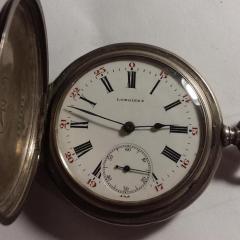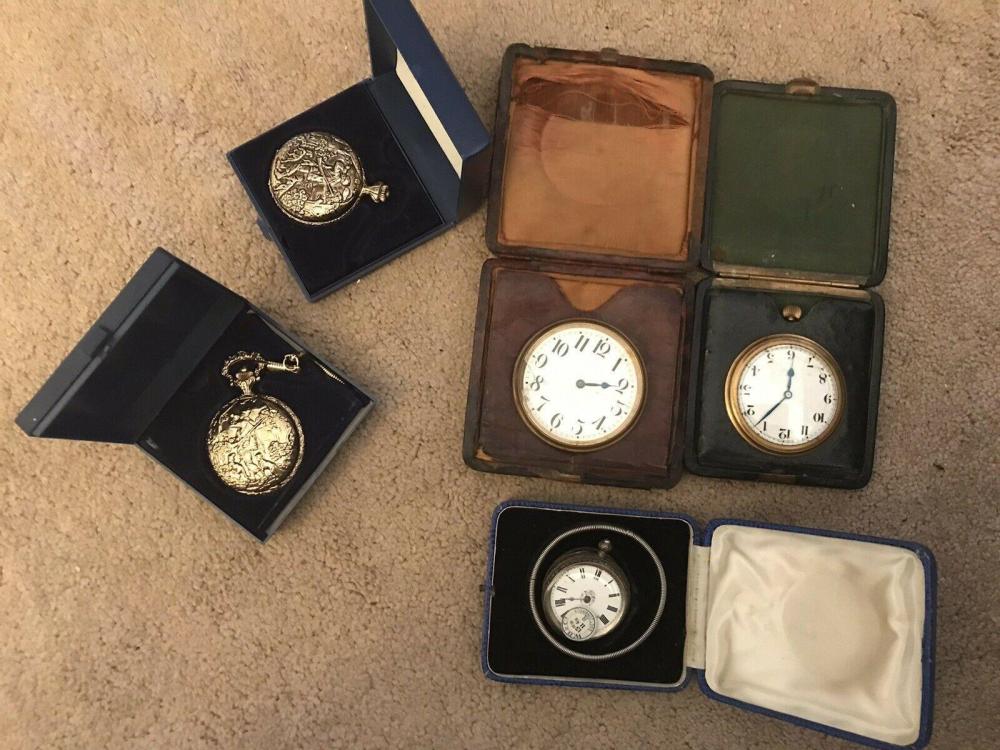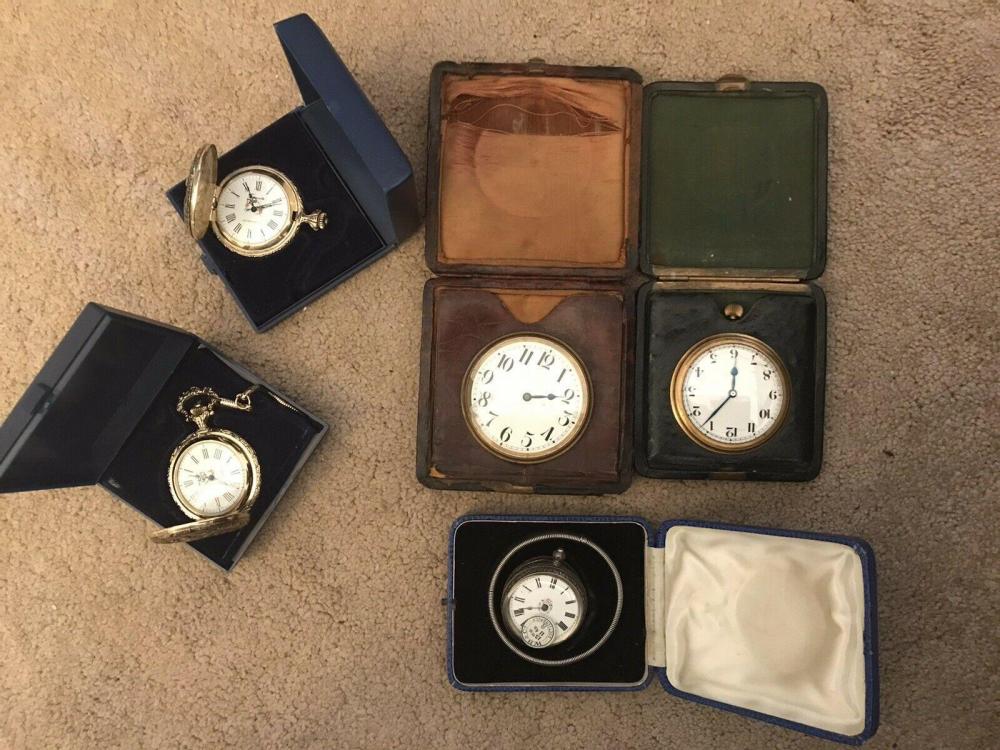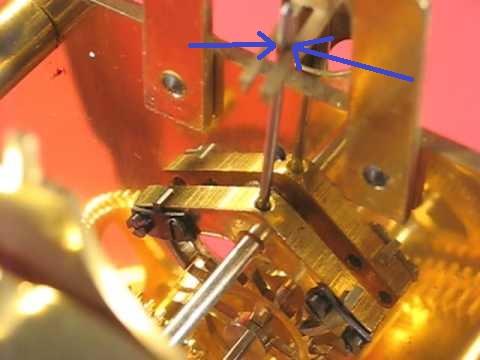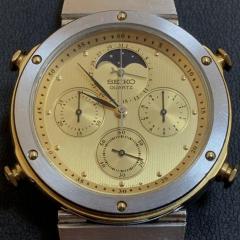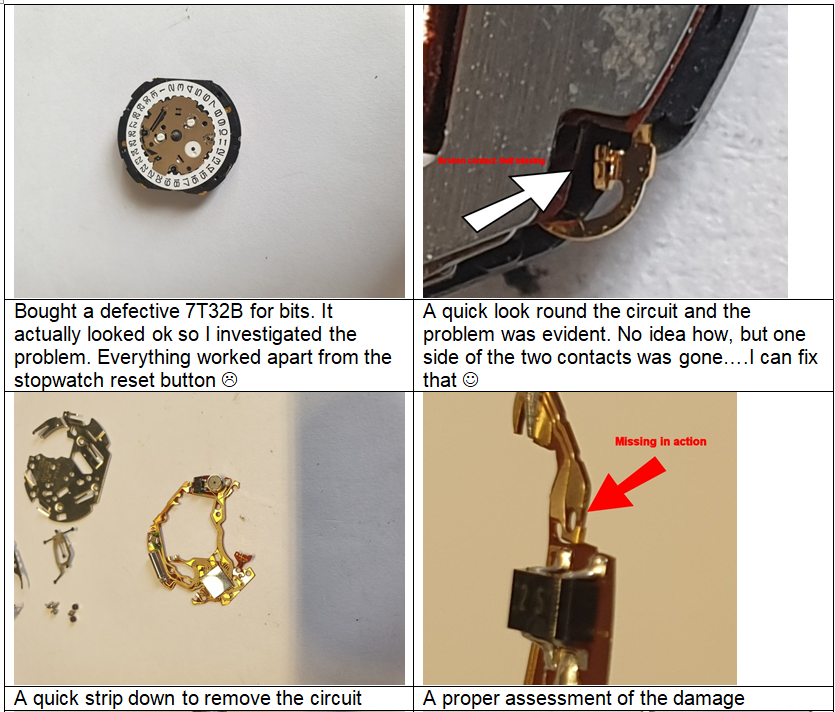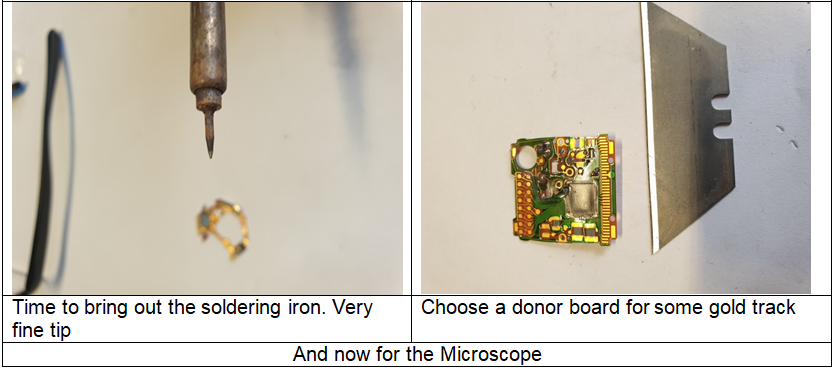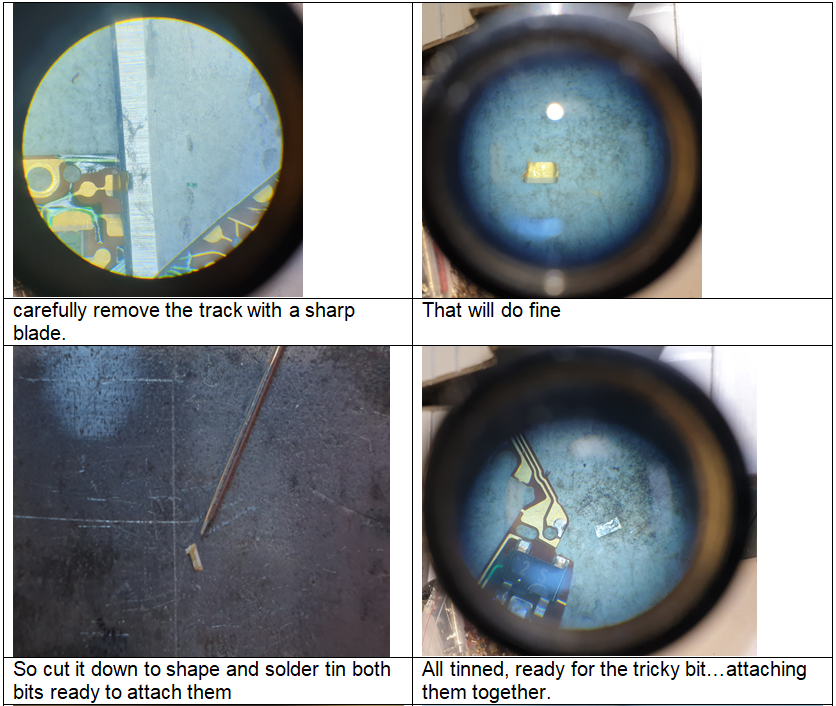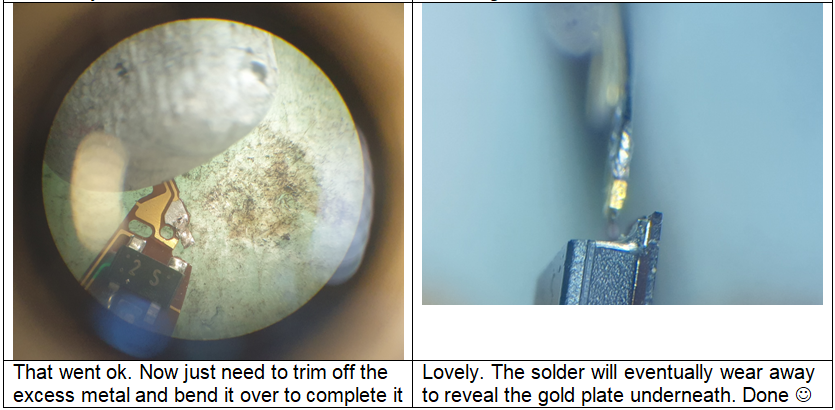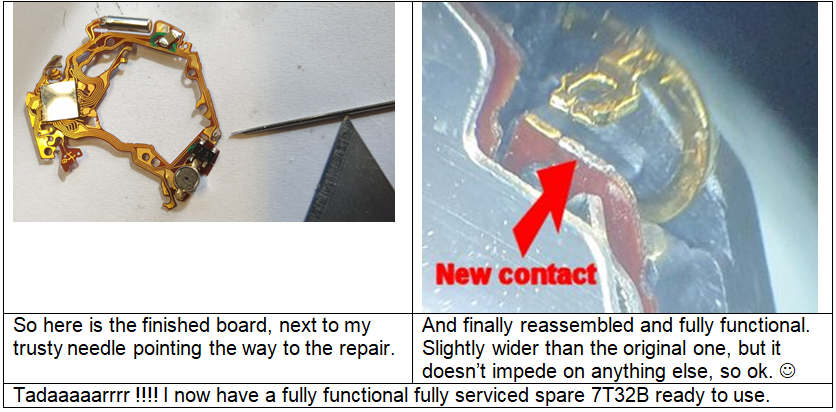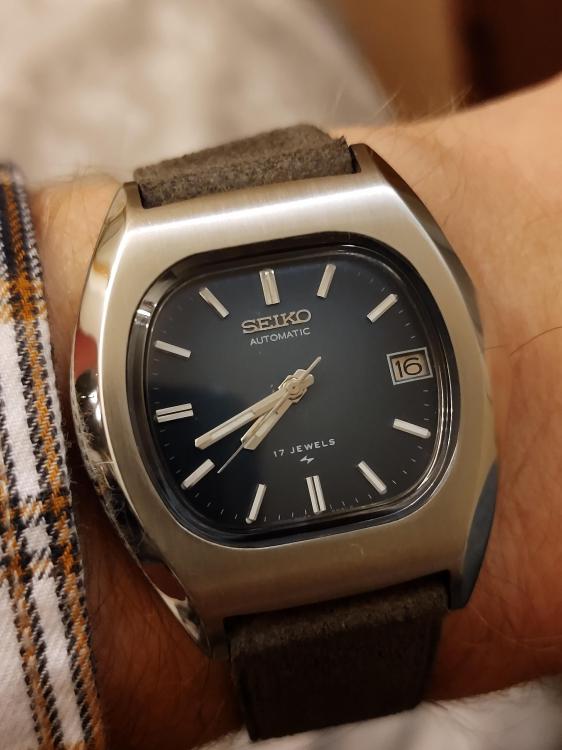Leaderboard
Popular Content
Showing content with the highest reputation on 10/19/21 in Posts
-
Hi all, I have uploaded a pdf copy of the Generale Ressorts catalogue. So that you can make yourself a hard copy. Handy to have in the drawer. (sometimes!). Even the pdf seems to be hard to find. Cheers Graziano. GeneraleRessorts.pdf2 points
-
You want the Sternkreuz ST, Domed Top range which you order by outer/inner diameter. Check out here.1 point
-
Do you have the crystal? On all of the watches of this style that I have worked on the crystal fits over the case back and the upper case (or frame as you refer to it) clamps the crystal firmly in place, so the crystal takes up the slack to provide a good interference fit between the upper case/crystal, and the crystal/case back.1 point
-
I had the self same issue with a Tissot, It went back twice under the warranty for them to replace the hand. Third time lucky its been ok since. I think they change the movement complete. Always check the simple things first it reduces costly mistakes.1 point
-
Hi here is a link to a company supplying cuckoo clock bits. They have quite a bit of info as well https://www.google.com/url?sa=i&url=https%3A%2F%2Ffrankenmuthclock.com%2Fcollections%2Fparts-cuckoo-clock-quartz-cuckoo-miniature&psig=AOvVaw2uyhw1OKsmUGpCzRL155c3&ust=1634727898258000&source=images&cd=vfe&ved=2ahUKEwiQ9NqOqtbzAhUNixoKHQ0PDFQQr4kDegUIARCyAw1 point
-
in a reason why you are not using suprol pro for the rinse? then 10 L are you sure that's going to be enough? if you look at the user manual for the Elma Super Elite they don't seem to be concerned about fire at all? although they make a couple references to the heated chamber at the bottom can reach temperatures in excess of 90°C. They appear to be more worried about you burning up something wherever you set the machine I don't see any of fears of the machine catching fire because of the fluids? it's interesting with the users manual for the cleaning machine is they don't seem to grasp that the user might get creative on their choice of fluids in the machine that apparently never crossed their mind. then I'm being confused? I'm looking at the material safety sheets for the suprol pro rinse and I'm looking for anything that would resemble flammability so that appears to be this "Flash point 23 - 25 °C". then for the rinsing your using naphtha "Flash Point : -20° C to -50° C ( Exists in the form of Vapor at ambient Temperature) ". This means the troubling aspect for your rinse is it's going to be a vapor even in the jar probably on the surface. And of course when you're spin drying it it's going to be a vapor. On the other hand if you look at this group naphtha or the other name it goes by lighter fluid is very popular as a cleaning fluid and of course as the rinse and I don't recall yet anyone burning the house down. on the other hand I don't know of how many people at have 10 L of it I would keep that some place separate from the machine. I suppose you might want to pick up a another fire extinguisher just to keep handy near the cannon of the stuff itself.1 point
-
Sometimes, the motto of my ancestral homeland seems to be, "If it's worth doing, it's worth overdoing!"1 point
-
Where ever you are using inflammable chemicals an extinguisher is always handy, I keep one myself as my cupboard has ISA, White spirit lighter fuel. cant be too careful.1 point
-
It can happen Mike they are more tempremental than women. Where old H has indicated oil there should be a minimum of space just enough so as the fork does not bind on the shaft at the end of its travel. Have a beer take a deep breath get the blood pressure down and then start again. good luck.1 point
-
1 point
-
1 point
-
1 point
-
1 point
-
LOL, so did I. I used to repair motherboards back in the day when they were actually worth something. Had a surface mount soldering station and a piece of kit which you would clip over or use in place of the processor. I would then use software to interrogate each semiconductor on the board till I found the culprit or the broken track.1 point
-
Well done I am afraid my hands are so old now I am past that. I used to desolder and change 486(remember them) intel processor chips. happy days.1 point
-
That's the sort of room a clock like that needs to live in! it's an outlandish piece but no clock is ugly, they are all beautiful in their own way....some more unique than others!1 point
-
1 point
-
Hi Clockmakers and Watchmakers, Originally I wanted to update one of my post (clock i got today part 4) then I realized that the topic is different so I started a new one. So now I got a number of clocks I am afraid of touch and I am probably in the same situation as many others. This is my hobby and I spend money on this and that and now I have exhausted my budget better to say I don't want to spend much more money without feeling terrible considering that I have a family and things in the house needs spending money on it. Now I could sell things I have, but what to sell? If I sell something what is not serviced yet, I miss the opportunity to learn how it works and how to service it. If it is already serviced successfully (you cannot consider to sell something you ruined) i am so proud and I love how the watch/clock looks like and I don't want to give it away. Even if i decide to sell what the shall the asking price would be? The only thing I rely on is ebay so i could look up if there is a similar item, but some of the things are just not there. I don't understand how clock/watchmakers make the money generally speaking. I was thinking that if i could go back in time I would start to learn the watch/clockmaking business and get a job as a clockmaker. But how to make the money? I spend many many hours on simple things and i understand that as you gain experience you are speeding up just like with anything else in life. But still a massive brass clock must take days to clean / repair / service. Am I right? I guess the business part also has its learning curve and you will learn how not to burn your time after a while? It would be interesting to see your thought on this topic? Not sure if this side of this clockmaking was discussed before. My best regards, lui1 point
-
I've watched several new watch and clock service and repair businesses open up over the last 3 years in a commercial premises and they are all doing well, plus a number of others working from home just doing the odd job after their 'day job' finishes, to another that works from home, does not have a shop front and specializes in only servicing and restoring high end value watches and he has more work than he can deal with coming in from all over the world. So you can definitely still make a living doing it, it is amazing how many people I still meet on the street that tell me they have their parents or grandparents watch or clock that is very special to them that they would love to get fixed but they don't know where they can take it. When I tell them where to take the watch or clock to get it repaired they get very excited. I think the biggest issue is there is a general perception from the public that good watch or clock repairers don't exist any more, atleast where I live. I'm the secretary of my local watch and clock association and this is something we are actively trying to fix, as despite are school having produced a number of graduates over the last few years any of those that want to are finding work in the industry are managing to find enough work. This Saturday I will be assisting staffing my associations stand at the biggest antique market where I live that happens every 3 months to promote our association and our members and our watch and clock school. We have been doing this long enough now that we actually have people bringing their watches and clocks to the market now for us to service, not to mention the odd few that get bought at the market and then left with us to service. The industry will never go back to the size it was in the 1950s, but I'm pretty confident it will continue for some time yet.1 point
-
In my experience, clock restoration takes a lot of time, and from what I can tell, people don't seem to keen on spending a lot on them. Perhaps it's a reflection of the current value of clocks. I tend to do it as a personal hobby. Watch restoration is also time consuming, but there is potential to be quite fast through experience. What I disagree with is people who describe work as "servicing" when in fact all they do is dip it in lighter fuel, clean the bridges/cocks, and swap the crystal.1 point
-
That's a pretty broad question! Without writing a book, pretty much if you are a professional you have the training and experience to do work in a timely manner, charge a fair price for both you and your client, and have a good life. Every situation is different, there are killer pros who work from home almost entirely by post, others with storefronts who also buy and sell, some like me who do a mix of repair as well as prototyping work for industry (that aspect would probably be limited to folks here in Switzerland). The investment in equipment can add up quickly, though not everyone needs a 15k buck Greiner cleaning machine, nor does everyone need jig boring and CNC equipment. If you're doing lots of watches the Greiner will pay for itself pretty quickly. If you do lots of clocks a Rollimat pivot polisher pays for itself in a month or two (and makes life sooooo nice). There are sort of limits to what one can charge, you can't expect people to send you a 7750 based watch for a general service if you charge 1500 bucks, there are too many good options. But if you can make a staff and vibrate a new overcoil hairspring for a rare vintage piece you are in special territory. Prices go up- but often not actual profit... this is a realm where often the few who do it do it because they love it.1 point





